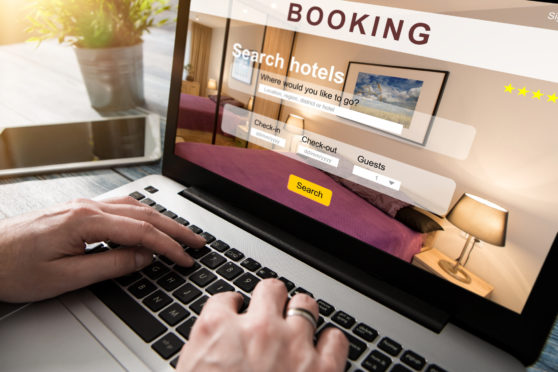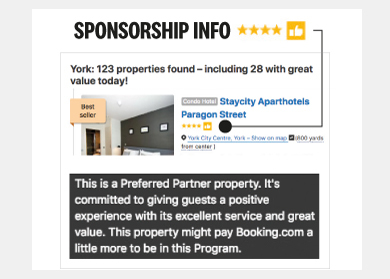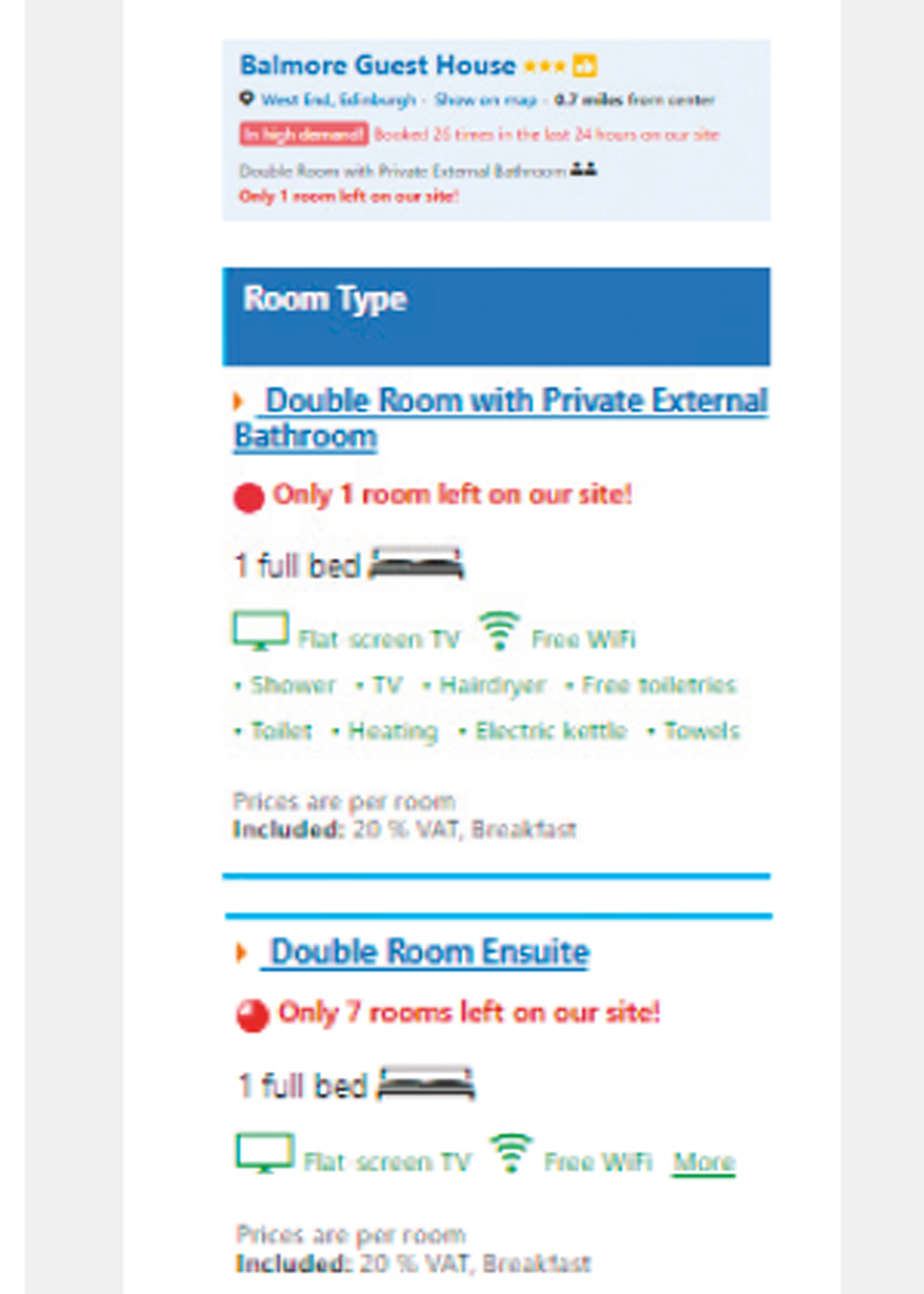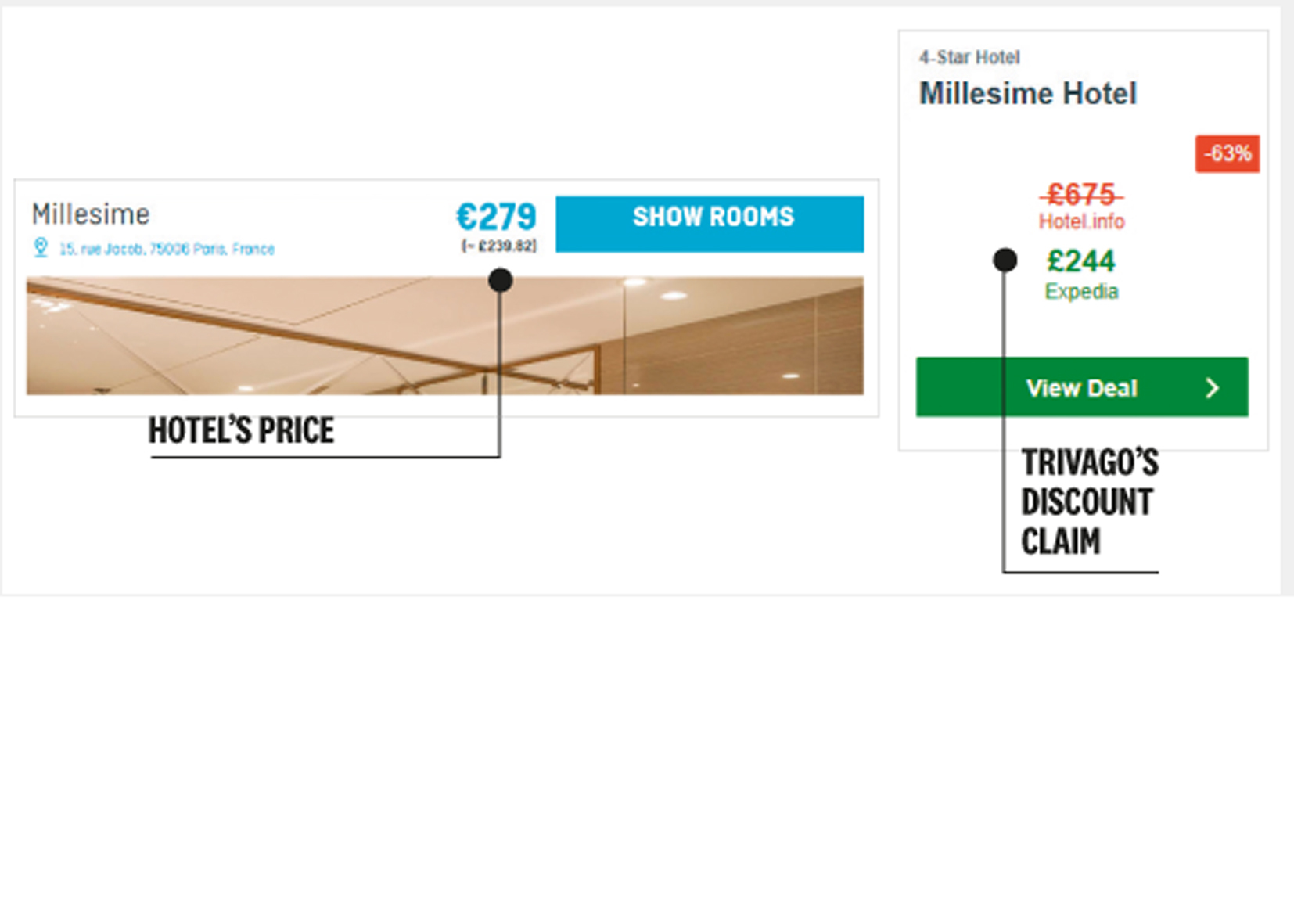
Major hotel booking sites are continuing to use tactics that could mislead customers despite a clampdown by the competition watchdog, a consumer group has warned.
Which? found sites are still skewing search results, using pressure tactics and claiming false discounts despite agreeing to a raft of changes to end misleading sales and hidden charges in February after a probe by the Competition and Markets Authority (CMA).
Expedia, Booking.com, Trivago, Hotels.com, Agoda and Ebookers were all named by the CMA for employing unfair practices.
While all six sites voluntarily agreed to comply with the new rules, the CMA gave them until September 1 to make the changes.
Which? has warned holidaymakers to remain alert ahead of the summer season.
On Trivago’s website, a deal with Expedia to stay at Paris’s Millesime hotel was £244 in February – advertised as a saving of 63%. However, this was only the case if compared with the most expensive price (£675) available on another site, not the average.
The investigation also found the ongoing use of pressure tactics such as “one room left at this price” and “booked four times in the last 24 hours”.
Which? found Booking.com advertising “the last” double room with private external bathroom at the Balmore Guest House in Edinburgh when there were another seven doubles available with ensuites for the same price.
Booking sites have also been told to clearly differentiate between sponsored and unsponsored listings by September to prevent some properties paying a premium for a prominent position at the top of the page.

Which? found it was “all too easy to miss” the word “sponsored” in paid-for listings on eBookers and Expedia while the only clue on Booking.com was a yellow thumbs-up icon which, when hovered over, expanded into a message explaining that the hotel “might pay Booking.com a bit more”.
Which? is advising consumers to filter searches by price or location, which should sift out the site’s sponsored links, and to contact their chosen hotel directly by phone to book.
The watchdog found most will gladly offer a cheaper stay or alternative perk to secure a booking from customers who call quoting prices they have seen online.

Rory Boland, Which? Travel editor, said: “These sites have been getting away with dodgy sales practices for years and while the regulator’s intervention is a positive step, millions of holidaymakers still going to be duped this summer before any changes are made.
“You’re usually better off calling the hotel directly for the best rate anyway – even if it can’t beat the price it will usually offer an incentive, discount or even a bottle of champagne to sweeten the deal.”

Enjoy the convenience of having The Sunday Post delivered as a digital ePaper straight to your smartphone, tablet or computer.
Subscribe for only £5.49 a month and enjoy all the benefits of the printed paper as a digital replica.
Subscribe